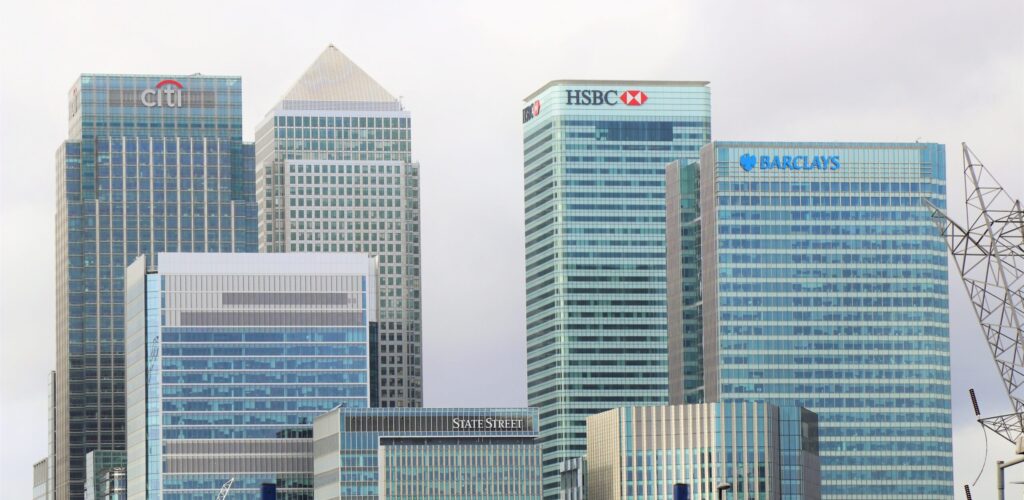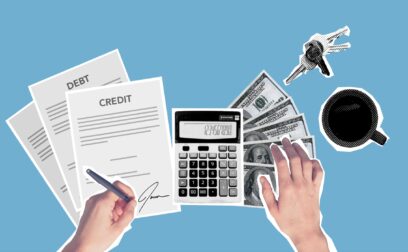In 2022 there were estimated 2.6 million SMEs in South Africa, an increase of 114,000 from the year before. Running your own business or working for yourself has never been more popular. However, too many of these businesses, (especially start-ups), are making life harder for themselves – because they either lack a dedicated business bank account, or the business bank account they have is not fit for purpose, (which means they’re missing out on business banking deals and services that could save them time and money).
So what should South African businesses who find themselves in this situation do? Read on to discover all you need to know about opening or switching a business bank account. Get a bank account that’s built for business and make your business’ money work as hard as you do.
What is a business bank account?
It’s a bank account opened in the name of a business and that’s suitable for limited companies, partnerships, sole traders, freelancers and gig workers. A business bank account is used solely for business transactions, and it is separate from your personal account. Many business bank accounts are simple money-in, money-out arrangements, usually with a debit card attached. However, there are other business bank accounts that can manage payroll for employees, handle tax payments and refunds, issue invoices, and support your accounting systems. Depending on the way your business operates, there’s almost certainly a business bank account to suit your specific needs.
Do I need a separate business account and personal account?
If your business is a limited company, registered at Companies and Intellectual Property Commission and with directors and shareholders, then yes, you need a business bank account. If you’re a sole trader, freelancer, gig worker, or even part of a partnership, then technically, you don’t need a business bank account. However, having one can be beneficial for a host of compelling reasons. (See below).
Why have a business bank account?
Having a business bank account can do a lot more for your business than keep your business cash in a safe place. Here are ten reasons why every business, even sole traders, freelancers and gig workers, should have a business bank account:
1. Enhances the credibility of your business
Somebody once said that good business is where you find it. However, most often, good business is where customers find you. A business bank account supports your branding and your business name. It adds weight to your marketing, invoices, and purchase transactions. Asking a customer to make a payment into your personal account could make it look like you are hiding something. Asking them to pay into your business account will promote your legitimacy and enhance your business’ credibility.
2. Essential for loan and credit applications
If you’re seeking a business loan, credit card, lease, or other credit product for your business, you may find it very difficult to secure the funds you need without a separate business bank account. Some lenders may take a dim view of business owners who use their personal bank account for business purposes. Others will only deposit loaned funds into a dedicated business bank account.
3. Certain banks require it
Somewhere in the reams of small print that you signed when you opened your personal bank account there was almost certainly a rule against using the account for business purposes. While most banks will ignore low-key business transactions for activities such as freelance design work, or income for part-time gig work like hairstyling, or food delivery, they are unlikely to ignore transactions connected to cash-heavy businesses such as mobile mechanics, food trucks, or market trading. In such cases, the bank may move to close your personal bank account and tell you that you must open a business account instead.
4. Facilitates organised bookkeeping
A business bank account immediately separates your business income and expenditures from your personal income and outgoings. Although this means you will need to keep an eye on two sets of statements, card transactions, and any banking costs incurred, it will be a bonus for your weekly or monthly bookkeeping, and it will save you a lot of time and effort when it comes to the end of your trading year and tax returns are calculated.
5. Provides heightened financial stability
A business bank account can help you to better plan your business’ cashflow and improve your personal financial stability. For example, even if you’re a sole trader or a freelancer, and not part of a limited company, you can still pay yourself a regular salary out of your business bank account and leave a balance to take care of business costs. This kind of planning allows you to control your personal budget and ensure you meet your business obligations without running the risk of overdrawing your personal account or failing to meet important business payments such as rent, or equipment leases.
6. Simplifies tax returns
Calculating tax or VAT returns, even with the aid of an accountant, can be challenging for many South African SMEs. A business bank account allows you to easily separate your business income and expenditures from your personal income and outgoings. This will simplify the collection of your financial information, (and may even reduce your accountancy costs).
7. Enables software synchronisation
Digital accounting systems, such as Quickbooks for SMEs, link spreadsheets, tax information and other financial bookkeeping, such as invoicing and payments to your business bank account. The software will typically track changes in your bank balance and will match them to your sales and purchases ledgers and your cashflow forecast. Without a dedicated business bank account it is not feasible to synchronise your accounting software to your bank, meaning you will be unable to use this type of bookkeeping system.
8. Safeguards your business credit rating
All South African businesses have a business credit rating, (even if many business owners are unaware of it), and it works just like your personal credit score. The better your business credit rating is, the better loans, leases and other financial offers your business will receive. A business bank account builds a clear wall between your business and personal financial transactions, helping to protect your business credit rating even if your personal finances and credit score take a dip.
Top tip: Don’t get caught out when looking for business loans and credit. Always check your business credit score before you apply.
9. Offers transaction limits tailored for businesses
Most personal bank accounts have limits on the transactions that the account holder can facilitate, such as daily cash withdrawal limits, and a per transaction limit for debit card purchases. Business bank accounts will usually have higher withdrawal and transaction limits than personal accounts, plus other features specifically tailored for businesses, such as automated invoice production, or the services of a dedicated financial adviser.
10. Easily differentiate from your personal account
No more trying to remember if purchases or income were for business or personal activities. A business bank allows you to quickly differentiate the transactions you conduct for business purposes and those you carry out for personal needs.
What do I need to open a business bank account?
It depends on the account provider. Although business bank accounts will usually have strict eligibility criteria, you may be able to secure a business bank account over the phone, online, through an intermediary, or you may need to make an appointment at a branch. Banks will typically ask for evidence of your revenue or trading history and will need to see your annual accounts or previous tax returns. In all cases, you will need to show proof of identity and provide the trading name and South African-based address of your business
How to choose a business bank account provider
Opening a business bank account can be difficult and time consuming. The paperwork you need and the application forms and processes you must complete will vary from one bank to another. Without expert guidance, SMEs could find themselves forever searching for a business bank account that suits their individual needs. The delays this can create could cause you to lose revenues and leave your business vulnerable to the competition.
Instead, working with a broker, who can compare business bank accounts from a wide range of providers is a better way to go. No more cold calls and endless demands for information, simply tell us what you need and leave the rest to us.
Get started with Swoop
Register with Swoop today to find a business bank account that works the way your business works.






 yet? Register here!
yet? Register here!